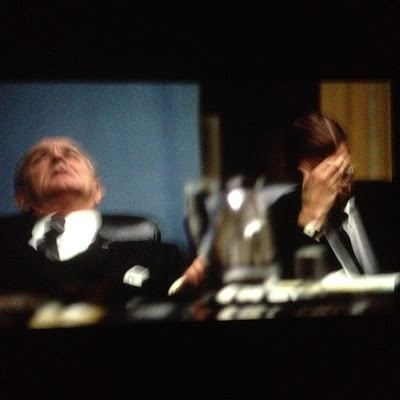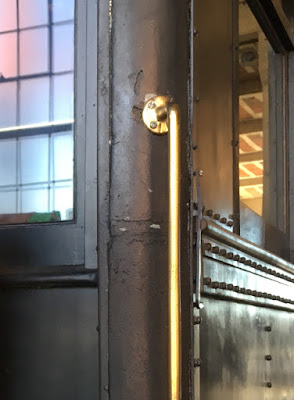I usually enjoy talking too people but I don’t like talking to a phone. To tell you the truth, I really do not even like talking to people on the phone. I’d rather do it face-to-face.
I don’t like talking to a car, a computer or a “device” of any kind.
Call me old-fashioned if you like, but that’s the way the cookie crumbles.
Lately my phone has been urging me to talk to it, and even call it by its name.
Siriusly though, I’m not into it.
I really don’t mind doing the alphabet thing with my fingers. That’s the way I was taught to communicate with the world, back in the ’60’s when I was baby boomer high school kid. Maybe it’s because, back in the day, I went to see Stanley Kubrick’s space movie, 2001, and the astronaut guy in the movie got into an argument with the onboard computer because the computer, as I recall, wouldn’t let him do something that he needed to do to avoid dying, or something like that..
The computer’s name was Hal.
In the last ten years or so, I have written and published four novels, using my fingers on a keyboard. Speaking of the keyboard, I do like the newer version, you know, the computer keyboard, which is so easy to punch. These slick new ones are really the bees’ knees, and they beat the heck out those old Underwood’s and Smith-Coronas, etcetera etcetera.
So yeah, maybe I’m old fashioned. Imagine that—a guy who grew up in the ’50’s and ’60’s being old-fashioned. We were the generation raised with a TV in the living room, which had never happened before in the history of the world. And we thought our parents were old-fashioned because they listened to Glenn Miller LPs and drank bourbon, while we preferred Jefferson Airplane and maryjane, and they insisted on running Ho’s insurgents out of south Vietnam, which didn’t turn out the way we planned.
Now our kids and grandkids probably think we’re old-fashioned because we don’t know how to talk properly to a phone or any other device, and we still don’t know to make the icons wiggle around so you can move them around or delete them or whatever.
Delete them all, I say! Delete them all!
Ha! Just kidding of course. Where would be nowadays without our “ mobile device?”
Maybe stuck in Hotel California with some woman of ill repute with mirrors on the ceiling and pink champagne on ice and she says we are just prisoners here, of our own device.
Don’t wanna go there.
Life has actually turned out better than that, thank God.
Yesterday, I was watching an online video with two very smart guys talking about the state of the world, how it has changed so much and is still changing very fast.
In their conversation, Thomas was telling James that he travels around the world and notices that there are a lot of folks who are falling behind the crowd in their use of technology in this here 21st-century. He sees people who suffer under the pressure of these technological accelerations, and who feel that the world is leaving them behind.
Great idea! Leave it behind. Or let it leave you behind, whichever comes first. Tell your phone to go to hell if you want to. Tell netflix to go jump in the lake, and command your digital flatscreen to take a hike!
I mean, Thomas has some good points in this exchange. He says that we old geezers, and generally everybody else too, would do well to be self-motivated instead of, I suppose, expecting that the world owes me a a living, and he says we should keep learning all through our lifetime instead of just, you know, developing one skill—cranking out widgets or whatever—and then spend old age, maybe even middle age, crying in yer beer over all these changes that conspire to overtake us and render our mid-20th-century skills obsolete.
Ha! “Conspire.” I didn’t mean to use that word. One thing I have learned is that it does not profit a man to build his world view around some conspiracy theory of history or politics or whatever the forces that be, are.
Because in the end, what really matters is not what the world did or did not do to you, but what you manage to do in spite of the possibility that the deck may or may not be stacked against you.
Every man a king. That’s what Huey said back in my grandfather’s day. Be the king of your own life, or queen, as the case may be.
And you have to understand that, as Ringo said, “this is not your father’s Oldsmobile.”
It’s best to, as Thomas pointed out, “amplify anything that is good and decent.”
I’ll second that motion.
Trust, ownership, lifelong education, true leadership, good community—these are the best attributes of “the good life”, which is not necessarily the same good life that Sinatra sang about.
Now, to close by reiterating my opening parry. . . the good life does not necessarily consist of knowing how to talk to your phone, or any of your other damned devices for that matter. But it does help to learn how to talk to people, and to get along with them in your community. And to build good community wherever you find yourself stationed at this stage of life, before the jig is up.
And one more thing. Do not ever neglect to, as Jordan B.P. says, Clean your room! Even if its in a nursing home. Don’t wait for the attendants do everything. Pull your own weight for as long as you possibly can, and pull somebody else’s weight, too, if you’re able to do it, for as long as you can.
As for the phones, etc—they can go to hell for all I care.
I won’t be there, because the Lord wrote me a good fire insurance policy back in 1979.



























